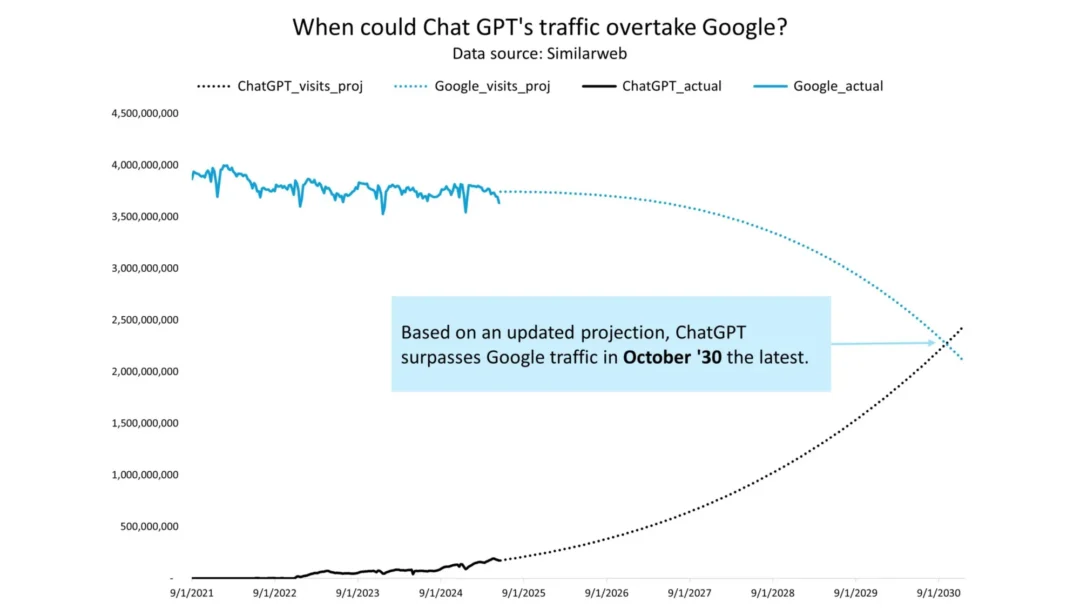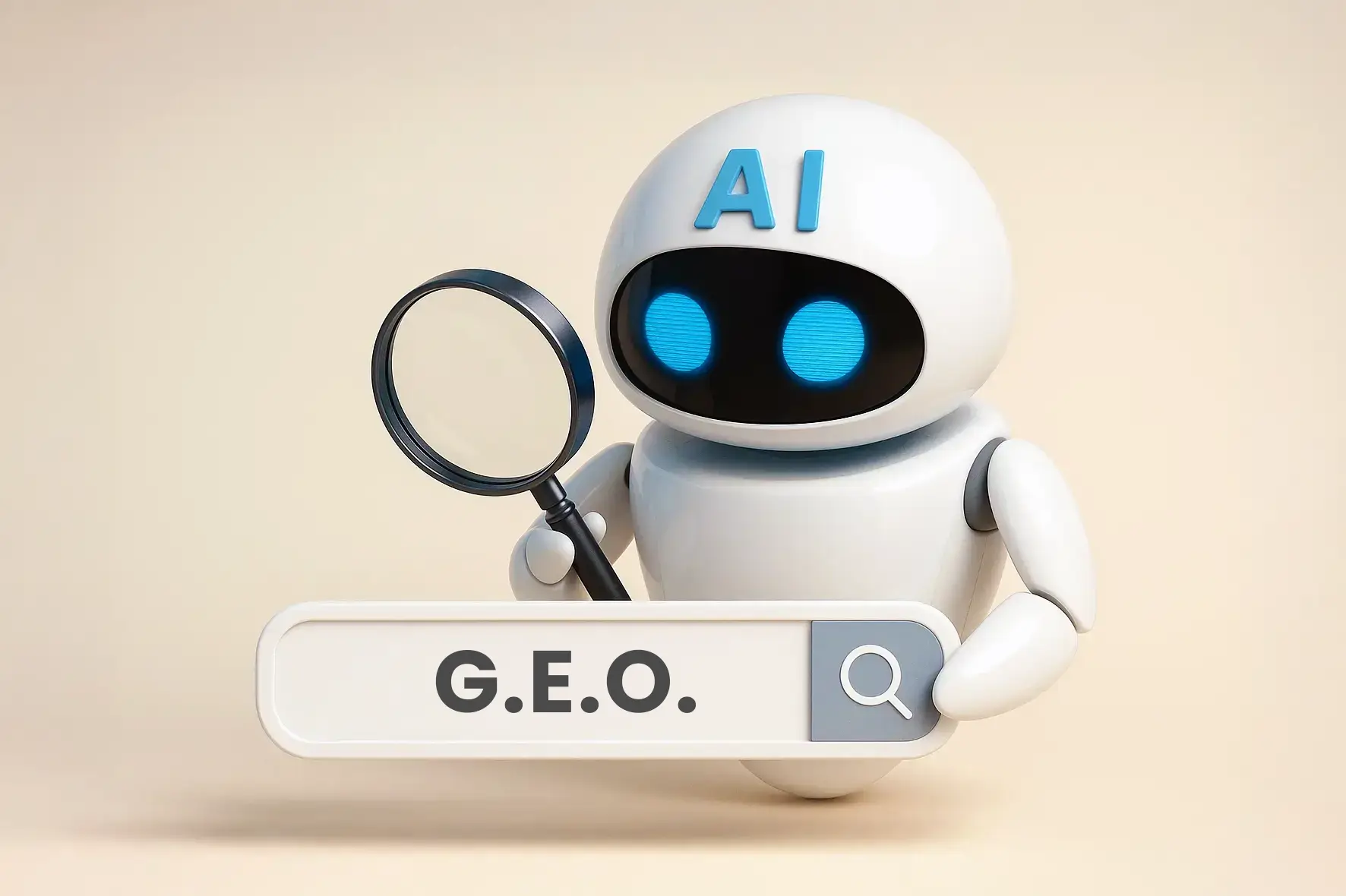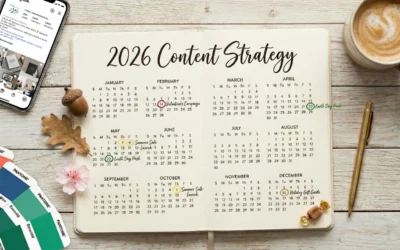As brands vie for visibility, agencies should remember that AI platforms like ChatGPT, Gemini and Copilot are not just generative chatbots – they are search engines too. That’s Generative Engine Optimisation (GEO) in a nutshell.
In the world of PR and marketing, agencies have spent much of the past decade carefully devising and fine-tuning SEO strategies to ensure their clients’ brands appeared prominently whenever consumers seek out information about products or services.
What began as a simple matter of strategically including as many keywords as possible became a cornerstone of brand marketing as high search engine visibility was able to build trust and drive organic traffic in a more cost-effective way than paid advertising. By aligning marketing with customer needs and search trends, it’s fair to say SEO changed the way brands attract and engage their audiences.
With the rapid and growing application of AI in communications, we are now seeing a significant shift in the way brands manage their online visibility. SEO is no longer the only game in town as agencies must now also consider how their clients appear in AI-generated search results. Here’s what you absolutely need to know about Generative Engine Optimisation (GEO).
What is Generative Engine Optimisation (GEO)?
GEO is a new strategy centred around creating and optimising content so it can be easily discovered and used by AI chatbots such as ChatGPT, CoPilot, Gemini and others. Although it shares some characteristics with SEO (structured content, metadata), it’s a different beast.

That’s mainly because GEO strategy is shaped by how large language models (LLMs) are trained and the way they generate responses in real time. LLMs don’t crawl websites in the same way that search engines do; instead, they generate answers by drawing on their own training data as well as licensed material, connected APIs and publicly available information.
What AI platforms look for in content
This in turn takes the emphasis away from keywords and heightens the importance of other key ‘signals’ including:
- Brand mentions in credible media outlets
- Press rooms that use metadata (e.g. schema)
- Owned content (e.g. blogs, podcasts, social profiles)
- References on third-party and social platforms
- Mentions in high authority domains (e.g. top tier media)
In other words, do keep hitting those keywords but make sure also that your brand is appearing consistently and with credibility in the wider online landscape.
Why PR is central to GEO success
Looking at the elements listed above, it’s easy to see why PR will play such a starring role in the evolution of GEO. Most PR agencies (or in-house PR teams) are already managing the activities that produce the sort of outputs that rank highly for GEO.
Media coverage, for example, remains the bread and butter for many PR strategies, while targeted media lists and tailored outreach are specifically designed to generate authoritative, third-party endorsements that are likely to be recognised as credible signals for AI platforms.
In the world of thought leadership, PR agencies also create and manage a range of owned content (press releases, blogs, branded assets) designed to position company spokespeople as relevant, knowledgeable experts in their field – another key criterion in GEO ranking.
It is the unique storytelling approach of the PR industry, however, that really chimes with AI platforms. PR teams are really good at crafting narratives that answer the sort of questions that go beyond mere keywords (SEO strategy) and delve into the how and why of a subject matter. More than anything, this multi-layered approach to messaging and content creation gives brands their visibility in the GEO landscape.

How to make your content GEO-friendly
In this evolving search ecosystem, generative platforms are increasingly shaping the way people seek out information. Declining web traffic is not because there are fewer people online, it’s because more people now accept the first AI answer they are given (Google’s Gemini is a perfect example of this).
For PR professionals, this means expanding our focus on search rankings and making sure the brands we represent are showing up strongly in those AI-generated responses.
This doesn’t mean we have to tear apart our approach to content creation – as I’ve said, a lot of that PR-generated content is already of interest to the likes of ChatGPT. It’s more about making sure the content we do produce and manage is set up to resonate with those platforms.
Here are some things you can do to improve your GEO rankability:
- In thought leadership pieces (e.g. LinkedIn articles or quotes within press releases), make sure the author’s job title and field of expertise are clearly articulated.
- When you’re writing about a particular subject matter (e.g. for a blog or press release), put yourself in your reader’s shoes and think: “How would they ask a question about this subject?” Then craft your content to answer that question.
- Think about including short summaries of opinion pieces (e.g. blogs) within that content. For example, the sub-header at the beginning of this article will help AI platforms to recognise that this piece of content is relevant.
- Focus on readability. While SEO prioritises keywords, you can also use automated readability tools to make sure AI platforms (and humans!) can easily read your text. Use shorter sentences, everyday language, clear headings, lists, FAQs.
- Keep checking the visibility of your brands on different AI platforms to see how they rank when you ask questions that are related to their sector or activity. See how your competitors rank too.
Looking ahead – the future of GEO
Like AI itself, GEO is a very recent phenomenon. We are all still figuring it out. As we get to grips with the opportunities presented by GEO, the best performers will be those that take a holistic approach and collaborate. For PR agencies, that means including tech and digital teams in the conversation. It also means continuous tracking and fine-tuning of content strategies.
But by understanding GEO and implementing a strategy now, your brand can get ahead of a game that is likely to evolve hugely in the coming months and years. If you’d like to chat about how Cullen Communications can help you take advantage of the GEO revolution, we’d love to chat.

About the author
Owen Cullen is Managing Director of Cullen Communications, and provides high-level strategic guidance and consultancy. His specialist skills include corporate strategy, digital communications and sustainability.





